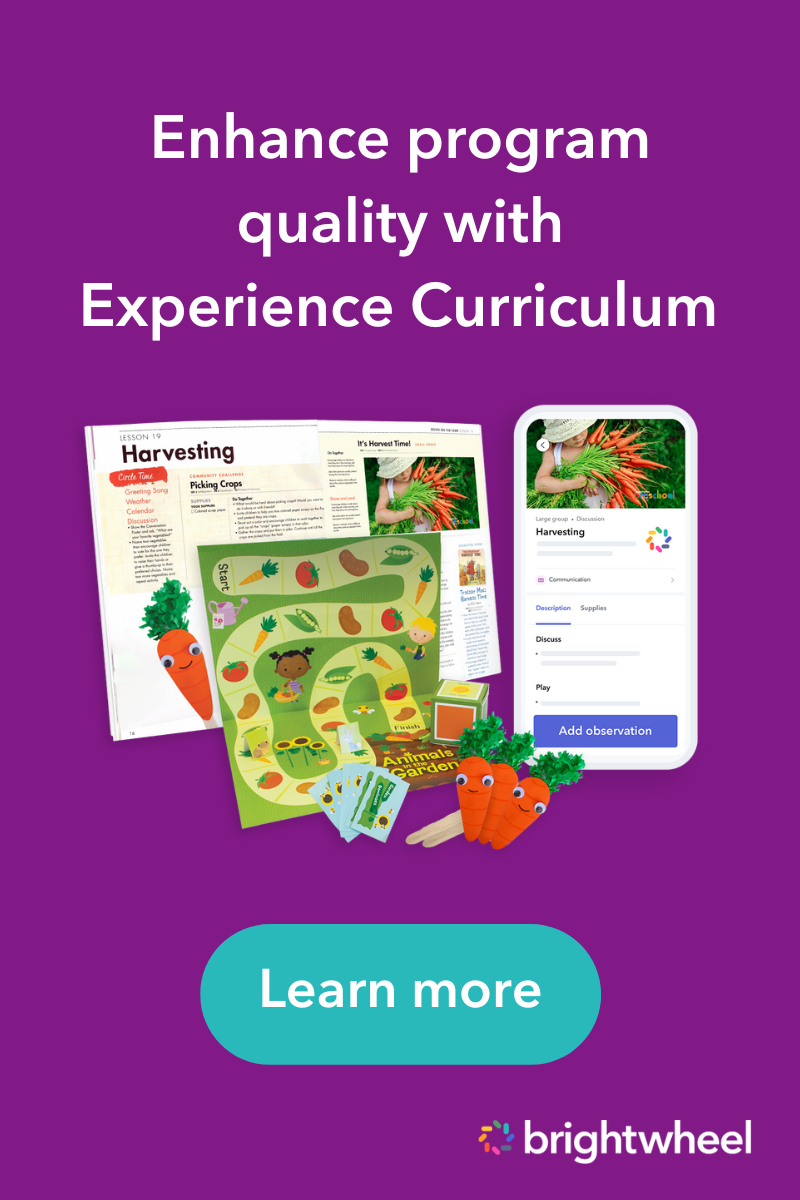Introducing young learners to social-emotional learning (SEL) is as important as teaching them numeracy or literacy skills. Social and emotional skills like self-awareness, empathy, and self-regulation help children build healthy relationships and confidence which are essential for long-term success in school and life.
Including SEL in preschool curricula has been proven to promote positive attitudes toward school and academic success. If you’re a preschool director or administrator thinking of strengthening the SEL element in your curriculum or wanting to build a new curriculum around SEL, this article will guide you. We’ll discuss the importance of SEL and explore a few components of the social-emotional preschool curriculum.
What is a social-emotional learning curriculum?
A social-emotional learning (SEL) curriculum combines learning experiences and instructional practices designed to help children improve their social and emotional skills like managing emotions and navigating relationships.
It’s important to note that there’s no standard approach to SEL. For example, while some programs specialize in developing core SEL competencies like self-awareness and responsible decision-making, others focus on character development. Also, delivery methods can vary.
Choosing the right SEL curriculum for your program will depend on resources, specific circumstances, and program needs. For example, you might need a curriculum that caters to children with diagnosed mental health problems or one suitable for small groups instead of whole classrooms. Other factors to consider include:
Research-based vs. evidence-based
While research-based programs are based on empirical evidence (prone to errors) and theories, evidence-based programs have been rigorously tested and proven effective.
Various instructional methods
A curriculum that offers varied delivery methods like storytelling, small group sessions, song and dance, role play, and worksheets can accommodate children’s different learning styles.
Targets specific SEL skills
Choose a program that targets specific skills that promote a child’s overall social-emotional development. Skills can include things like learning to identify and appropriately express their emotions, or social and interpersonal skills like sharing and taking turns.
Considers context and environment
It's important for a curriculum to consider the broader community and environment where children live and learn. It must involve families’, caregivers’, and community partners’ perspectives.
Provides implementation support and capacity building
Find out what supports the curriculum offers regarding initial training and continual support to ensure accurate implementation. It's important that the curriculum provides resources and practices to build teachers’ capacity for SEL.
Why is social-emotional learning an important part of the curriculum?
Research indicates that children with SEL opportunities have greater academic success, limited behavior issues, and higher levels of positive social behaviors. Social-emotional learning gives children essential skills to manage emotions and navigate social situations. Children whose teachers have effectively engaged in SEL practices can offer support to a peer when needed, better cope with stressful situations, and recognize and label their emotions. They also gain confidence and take the initiative to have their needs met.
A child’s brain develops more rapidly from birth to age five than at any other time in their life. The connections between their brain cells are double that of an adult, making social skills learning easier and allowing them to absorb and retain a considerable amount of information. As a result, children’s experiences in this critical stage have a long-term effect on their development, making SEL an essential element of the curriculum at this stage.
Social-emotional curriculum in preschool
Each social-emotional curriculum is different regarding factors like skills they focus on, delivery method, and age group. Experience Curriculum is one example of an early learning curriculum that integrates social-emotional components into each lesson plan. Below are the main skills Experience Curriculum focuses on and how the SEL curriculum helps children build these skills.
Self-concept
Self-concept can be described as a child’s thoughts and feelings about themselves. An SEL curriculum helps children build self-concept by developing their ability to express preferences. For example, they may decide to play with a toy truck and not building blocks, or they may prefer the color green to red. Children also learn to identify their feelings and those of others, like sadness, happiness, excitement, and worry. They also learn to manage their emotions.
Self-direction
Self-direction helps children learn to make choices with limited external input. As a result, self-directed learners grow into adults who take the initiative to solve problems, formulate plans, and evaluate the effectiveness of solutions. An SEL curriculum helps learners build self-direction by encouraging them to follow the rules and routines and transition easily from one activity to another.
Social relationships
An SEL curriculum helps children build positive social relationships by developing positive attitudes like empathy for others. For example, when Carlos notices that Lucas is on his own and not playing like the rest of the class, he walks up to him and asks if he’d like to play with him. Children build positive relationships when they care, show empathy, and respond to others’ needs. This type of curriculum also teaches them to build social relationships by cooperating with others, for example, taking turns with activities like using the swing or racing a car down the track.
With the brightwheel app, you can access Experience Curriculum, a complete, easy-to-implement system with digital lessons in brightwheel and hands-on learning materials mailed to you. Educators love this tool because it’s an all-in-one education platform that saves them time every month, enhances their program quality, and increases engagement with families.
SEL is that important
Whether you’re building a new SEL curriculum or strengthening an existing one, the valuable social-emotional skills that children gain in your program will set them up for success in future schooling and social interactions. By helping children develop important skills like self-awareness, empathy, self-regulation, and relationship building, you can equip them with the tools they need to navigate the complex social world around them.


